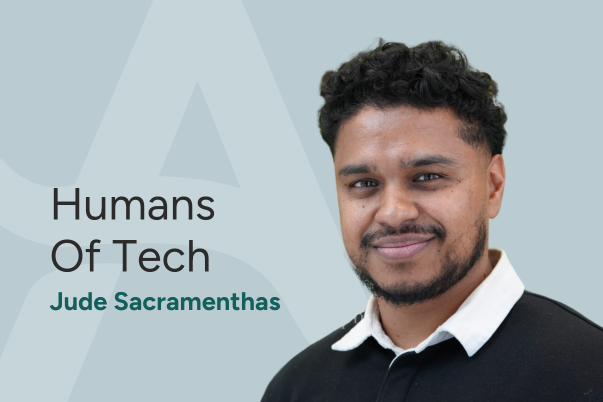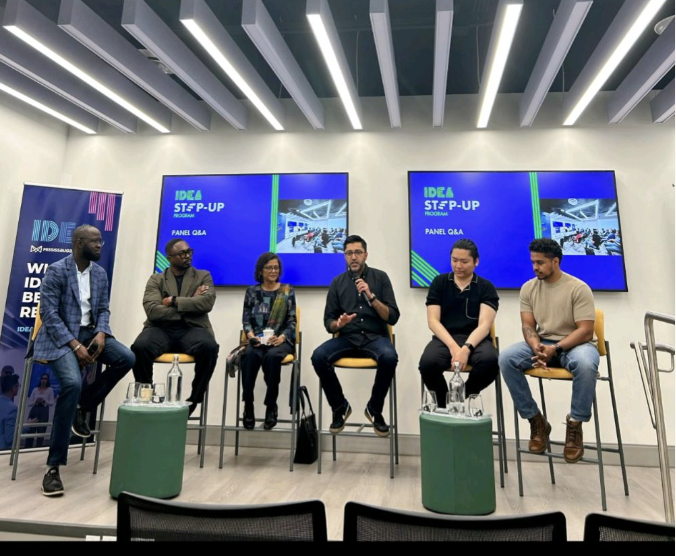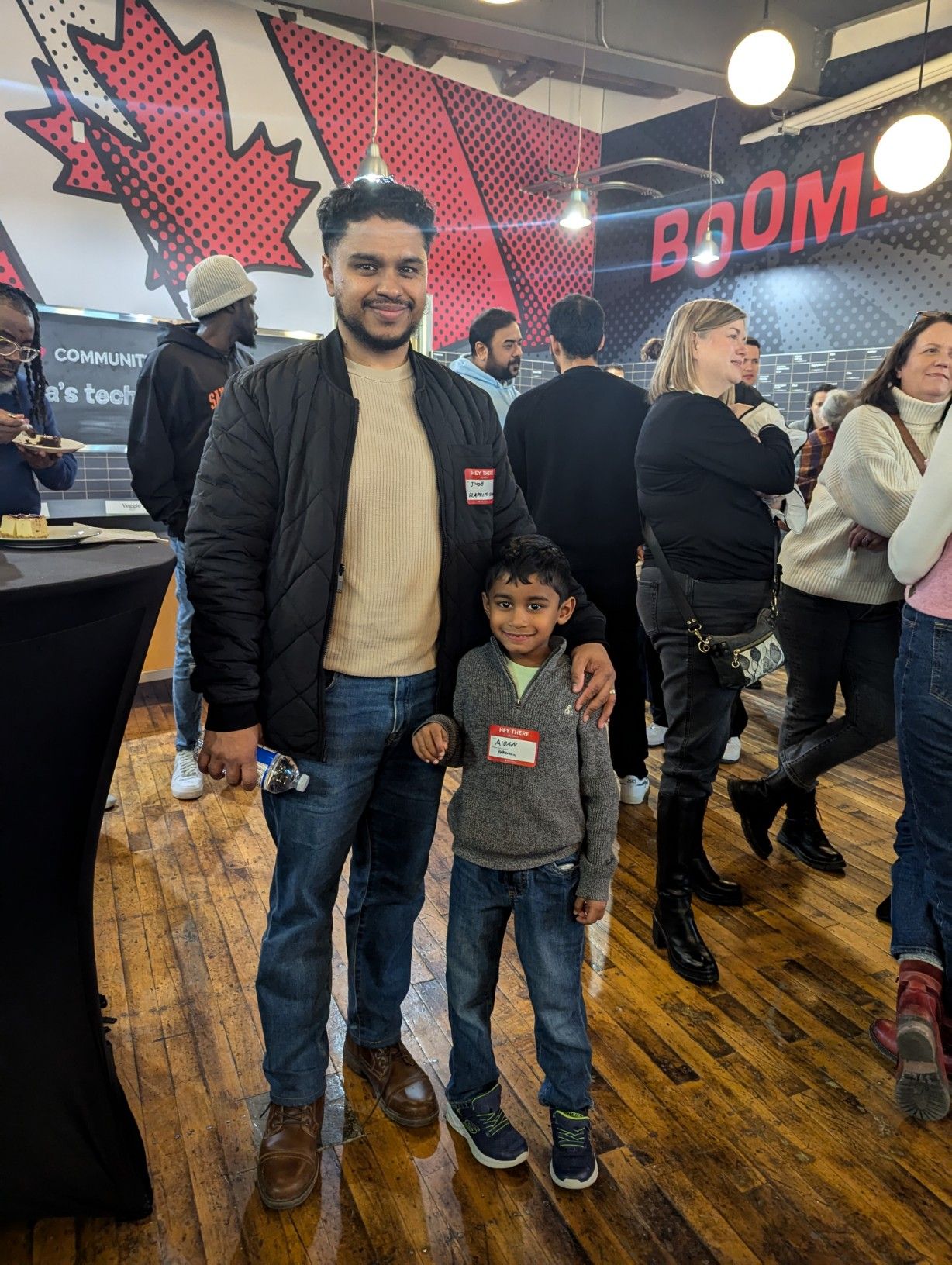
Ask Jude Sacramenthas, VC at Graphite Ventures, what he does and he’ll say: “We invest in early-stage companies, focused on Canadian founders building in Canada.” That’s the short version. The longer one is that he’s also working on the future of venture capital itself, he is passionate about bringing AI into the workflow so investors can spend less time buried in data entry and more time doing value-driven work. For Jude, that means finding ways to support founders beyond capital: opening doors, making connections, and building trust early. Because in a world where the best companies are chased by dozens of investors, goodwill isn’t just nice to have, it’s everything.
Jude’s path into tech didn’t follow a straight line, it started with gaming. In Grade 7, he was so hooked on online games that he built his own private server, writing SQL and creating a small community where people could log in and play. That curiosity for tinkering and building stuck, even as he went on to study economics and begin his career in banking. Finance appealed to him, but over time it started to feel repetitive. The spark reignited when he learned about RBCx and saw how technology and capital could come together to back ambitious founders.
In hindsight, he’s glad he didn’t take the “perfect path.” Each step, from retail banking to venture capital, gave him the chance to strengthen soft skills he never would have developed otherwise. A shy kid growing up, Jude credits those years on the frontlines of banking with helping him build the social skills and perspective he leans on today. It’s why he believes the best VC teams are built around a range of experiences and skill sets, not just the traditional ones.

For Jude, one of the biggest lessons has been embracing the velocity of learning. Just as technology evolves at a rapid pace, he’s found that the further he gets in his career, the faster he learns. The challenge, then, is knowing what to do when that growth plateaus, how to seek out new challenges, whether inside an organization or beyond it.
Early in his career in banking, he learned how easy it is to feel stuck: you master a role, start performing well, and yet the path upward isn’t always clear. Instead of letting frustration take over, Jude learned to set expectations with managers, be upfront about what he needed to grow, and stay motivated through the cycle. That perspective deepened during COVID, when he was balancing work while embracing the excitement and challenges of a growing family, with a toddler at home and another on the way. It was a hard season, and he felt it in his performance, but coming through it gave him confidence that he could handle almost anything. “When things get difficult, I look back at that time and remind myself, I got through it once, I can get through it again.”

Jude credits much of his leadership style to a simple mindset: stay curious and open-minded. He believes you can learn from anyone, often from people earlier in their careers, because the world changes so quickly that fresh perspectives can be just as valuable as seasoned ones. His approach is to listen, weigh different ideas, and adopt what makes sense, even if it’s just a small piece.
That same mindset shapes how he hires. Beyond technical skills, he looks for grit and perseverance, the kind of “hustlers” who are eager to learn and willing to put in the time. Jude knows that breaking into VC isn’t a straight path; it took him years of applying, building his toolkit, and getting feedback before he got his shot. What impressed him most, then and now, is the energy of people who show up ready to learn, help founders, and keep going even when the answer is no, or “not right now”.
Jude says the first time he truly felt like he belonged at work was at Graphite, where Steve Currie became both a mentor and champion. In earlier roles, promotions felt tied to grinding harder than everyone else, doing two jobs, hitting every goal, and still waiting for recognition. With Steve, it was different. He treated Jude like a mentee, invested in his growth, and opened doors for him. It felt less like a company making a safe bet on a proven hire, and more like he was the startup they were backing - betting on his potential, trusting he could grow into something that would one day deliver venture returns.
That culture of trust and humility gave Jude something he’d never experienced before: the autonomy to run with big ideas and the backing to help shape the future of VC. It felt, he says, like being a new portfolio company himself. Today, he carries that same energy forward in how he leads, hiring people for their unique skill sets, giving them space to own their work, and anchoring his style in three words: trust, support, transparency.

If Jude could invent one piece of tech today, it would be a true AI co-pilot for venture capital, not to pick investments, but to supercharge how VCs support their portfolio companies. Imagine one connected ecosystem where founders could instantly access the best talent, partners, and introductions through a single platform. That kind of tool, he says, would fundamentally change how investors add value beyond capital.
It’s part of why he’s so excited about the current wave of AI and workflow automation. With CEOs everywhere looking to adapt their processes, he believes automation can finally close Canada’s much-debated productivity gap. Smaller, more capital-efficient teams are already reaching milestones like $1 million in ARR, and students are turning more entrepreneurial than ever, building companies without waiting for permission. For Jude, that democratization of entrepreneurship, where anyone with grit can create their own opportunities, is the shift that matters most.
Jude’s hopes for impact are simple but ambitious. He wants Canada to be seen as one of the best places in the world to build, adding value globally while creating opportunity at home. If his kids grow up in a country where they can chase their ideas freely, whether in tech, entrepreneurship, or something else entirely, then he’ll consider that success. “I’m still early in my career,” he admits. “Legacy is a big word. But if one day I can be as impactful as the mentors who’ve shaped me, then I’ll be happy.”